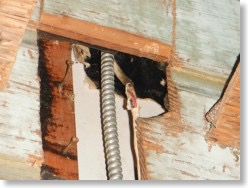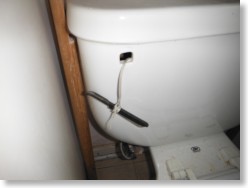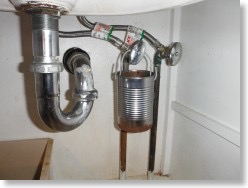
Home Inspection FAQs
- What is a quality home inspection?
- What is the cost of a home inspection?
- Can I do my own home inspection?
- Why do I want an accurate home inspection?
- What will the home inspection include?
- How do I know my home inspector is qualified?
- Is the buyer’s home inspection enough?
- Should I be there when the home inspector does the inspection?
- Can the home fail a home inspection?
- When do I need to call a home inspector?
- What if the home inspection reveals problems?
-
What is a quality home inspection?A home inspection is a top-to-bottom, visual, structural and mechanical assessment of the condition of a home. Essential to the nature of a quality home inspection is that it is absolutely impartial and therefore provides an objective list of conditions that require attention and/or maintenance. Back to Questions
-
What is the cost of a home inspection?Different home inspection companies have different ways of determining the cost of a home inspection. Some base the home inspection on a home’s square footage. Others may base the cost of a home inspection on the list price of the home. Dinkelman Home Inspections believes these methods are flawed in terms of providing a price for a home inspection that is comparable to the individual home to be inspected. We believe the most accurate method is based on the number of bedrooms, bathrooms and heating/cooling systems, as well as whether the home includes a basement and/or garage. Back to Questions

-
Can I do my own home inspection?Key ingredients to providing a quality home inspection include is the experience, knowledge and training to accurately assess the true condition of a home. A qualified home inspector knows what to look for. But, an equally important factor is the ability to provide an utterly unbiased assessment of the condition of the home. For a homeowner selling a home, or a prospective buyer who is thinking of buying a home, this is virtually impossible; they have too much invested in the pending transaction to be fully impartial in conducting a home inspection. Back to Questions
-
Why do I want an accurate home inspection?If you’re purchasing a home, it is likely the largest investment you’ll ever make. You don’t want that figurative ‘new-car smell’ to influence your decision. In other words, you want someone who doesn’t have an emotional involvement in the deal to assess the condition of the home. Without an accurate and impartial assessment, the purchase of your dream home could turn into a nightmare.

If you’re selling a home, you don’t want to wait until the buyer’s home inspector finds a problem; you want to address any issues before they have a chance to scare away a buyer or effect the negotiation process. Back to Questions -
What will the home inspection include?A qualified home inspection provides an assessment of a home from its foundation to its roof and everything in between. This includes a inspection of the home’s structural integrity – the roof, attic, insulation, walls, ceilings, floors, windows, doors and basement. It also includes an inspection of all mechanical and electrical equipment – plumbing, heating and air conditioning, wiring, electrical outlets, lighting and electrical service panel. While you’re encouraged to accompany the home inspector as he goes through the home, so that he can point things out as you go, you will also receive a written report containing the findings of the home inspection. Back to Questions
-
How do I know my home inspector is qualified?A qualified home inspector is someone who has experience inspecting homes. In general, the more experience the better. They also have the certifications that demonstrate they’ve received and passed the necessary training. Finally, you want a home inspector who is affiliated with a trusted home inspection industry association. For instance, here at Dinkelman Home Inspections, we are members of NACHI, the National Association of Certified Home Inspectors, the most highly respected organization of home inspectors in the country. Back to Questions
-
Is the buyer’s home inspection enough?You may not want to wait for the buyer’s home inspection to uncover problems that could adversely affect negotiations for the purchase of your home. A buyer’s home inspection could even uncover something that would kill the deal. It’s often better to be proactive and have your own inspection first. In this way, you can address issues before they come up during the sale of your home. Keep in mind that a buyer may insist that you cover the costs of repairs for issues uncovered in their home inspection and you won’t have control of the process when they get bids for the work.

Back to Questions -
Should I be there when the home inspector does the inspection?At Dinkelman Home Inspections, we encourage you to walk with us as we conduct your home inspection. In this way, we can point things out first hand. We will generally provide an in-depth explanation of what is wrong and what it will take to fix the problem. We’ll also point out areas that simply require maintenance. Of course, you don’t have to walk along with us – we will provide a written report detailing the home inspection – but we believe you’re better served if you do walk along with us. Back to Questions
-
Can the home fail a home inspection?A home inspection is not a pass-fail equation. In other words, you won’t find thumbs up or thumbs down on the home inspection report. However, if you measure a home inspection’s success by the degree to which it provides you benefit and a clear assessment of a home’s condition, a quality home inspection is almost always a success. Back to Questions
-
When do I need to call a home inspector?As a prospective buyer of a home, a home inspector is usually contacted after the contract or purchase agreement is signed. However, it is vital that you ensure there is an inspection clause in the sales contract or agreement that makes the final purchase obligation contingent on a professional home inspection. The inspector clause should specify the obligations of the buyer and the seller.
If you are the seller of the home, you may want to call for a home inspection before you put the home on the market. Having a qualified home inspection upfront will allow you to address issues ahead of time that might have a negative effect on a sale of your home. Back to Questions -
What if the home inspection reveals problems?Almost certainly, the house will have issues – what house doesn’t? As a buyer, you want to know anything wrong with the home before you buy. This will help you to determine if you want to continue with an offer or whether you expect the seller to provide compensation to address any issues the home inspection uncovers.
If you are the seller, you want to address any issues revealed by a home inspection before they have a chance to interfere with the sale of your home. If you don’t find those issues, there’s a very good chance that the buyer’s home inspector will. Back to Questions